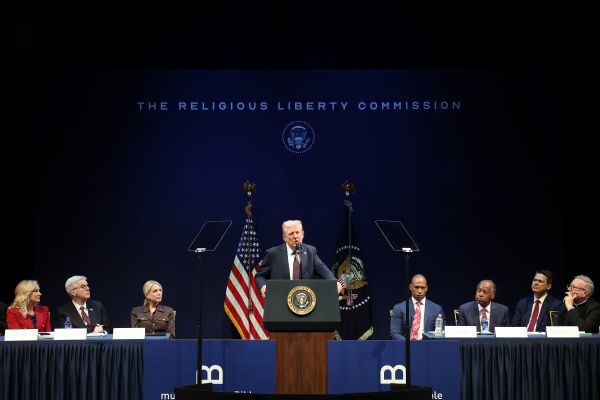What Church Switchers Look for in a Church
A recent study revealed what adults search for when switching churches. The most important factor, the study found, is the beliefs and doctrine of the church.
According to a series of LifeWay Research studies on "church switchers" – Protestant Americans who have attended more than one church regularly as an adult – 89 percent of adults indicated they select a new church based on what the church says it believes.
The second most significant factor in a church switcher's decision to attend their current church is preaching (87 percent) and the third is authenticity of the church members and the pastor (86 percent).
"These numbers indicate church switchers select a new church based on what the church says it believes and whether they live it out," said Scott McConnell, associate director of LifeWay Research, in the report.
The study further found that 80 percent said worship style is important and 69 percent said music is also among the top ten most important factors in choosing a church.
Other top important factors in church selection include care for community (76 percent); evidence of God's work and changed lives (74 percent); church members with whom to build relationships (73 percent); unity among church members (71 percent); and opportunities to learn biblical truth (70 percent).
Less significant factors include denomination, with only half the respondents saying it was an important factor in choosing a church; location (49 percent); worship times (47 percent); having acquaintances at church (47 percent); and church size (31 percent).
LifeWay Research also revealed how church switchers look for a new church. The most common search method is in-person visits (83 percent). Also, 64 percent say they rely on recommendations from family and friends. More specifically, 32 percent say they were first introduced to their new church by an invitation from a friend or acquaintance. Word of mouth and existing familiarity with the church are also common means of introductions (27 percent). And 25 percent say they were first introduced to the church when they saw it while driving.
Websites and local advertisements only accounted for 21 and 19 percent, respectively, of search methods among church switchers. For adults who make a residential move, however, they are more likely to use phonebooks, advertisements and the Internet to find a new church, the study found.
Most switchers have to attend at least four times before deciding to attend regularly (46 percent). Only 16 percent decide to attend regularly based on one visit.
Welcoming proved to be a significant factor in a switcher's decision to stay with the church. According to the study, 67 percent indicated that their current church's approach was congregants personally welcoming newcomers and 82 percent said such a greeting by congregants positively impacted their decision to join that church. Moreover, 84 percent said being personally greeted by the pastor or another minister positively impacted their church decision. However, only 49 percent indicated they experienced that when they visited their current church.
Other positive impacts on a switcher's decision include filling out an information card and the less common welcoming approach of being formally recognized during the worship service.
Overall, only 29 percent of church switchers indicate their church's welcoming approach had no impact on their decision to join.
In the meantime, many adults who decide to switch churches have some lengthy time in between leaving their former church and finding a new church. The study revealed 25 percent of switchers stop attending church for more than three months and 20 percent stop attending for a year or more. Among those who take a three months-plus break, 60 percent are not actively looking but are open to trying a new church; and 28 percent are actively looking for a different church.
For those who return to church, 51 percent say they "simply felt it was time to return" and 41 percent felt that God was calling them to go back. And a major motivation for resuming church attendance is to bring themselves closer to God (68 percent). The majority of church switchers consider themselves devout Christians with a strong faith in God (76 percent).
"These numbers demonstrate that the strength of one's relationship with God is much more important in determining whether someone will return to church than the type of initial disappointment that caused them to leave their previous church," stated McConnell.
The LifeWay study series on church switchers is based on 415 surveys.





















